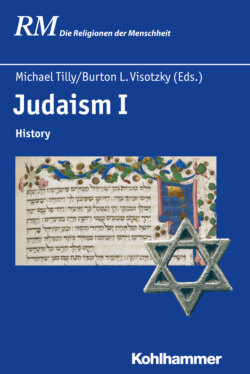Читать книгу Judaism I - Группа авторов - Страница 27
На сайте Литреса книга снята с продажи.
8.2 Judaism II: Literature 13 The Jewish Bible: Traditions and Translations
ОглавлениеProfessor Emeritus of the Hebrew University in Jerusalem, Emanuel Tov describes the TaNaKh, Torah (Pentateuch), Nevi’im (Prophets), Ketuvim (Writings) as Jewish Scripture that has come down from antiquity in complex ways. The traditional Jewish Bible, or Masoretic Text (MT) represents only one of the early text traditions, but is accepted by all streams of Judaism since the first century CE. The oldest source of MT is the Aleppo Codex, ca. 925 CE. All the printed editions of the Hebrew Bible and most of its modern translations present a form of MT.
The main site of ancient biblical manuscripts is in the Judean Desert near Khirbet Qumran, south of Jericho near the Dead Sea. There, remnants of some 950 biblical and non-biblical scrolls were found in eleven caves. Twenty-five texts found in the Judean Desert at sites other than Qumran display almost complete identity with the medieval texts. The Qumran biblical texts themselves, however, depart from MT. In view of this disparity, we conclude that for the Qumran community, the various Scripture texts were equally authoritative. Most likely, the biblical text was known in different ways not only in Qumran, but throughout Israel.
Before the discovery of the Dead Sea Scrolls, scholars were not aware that MT existed in the same consonantal form as early as the last centuries BCE. The Hebrew and translated texts used within rabbinic Judaism only reflect MT. Most scholars are now of the opinion that LXX manuscripts derive from a single translation into Greek that was repeatedly revised to conform to the proto-MT. In the first century CE, when the Christian New Testament writers quoted the earlier scripture, they used the wording of the LXX, since the NT was written in Greek.
Skilled persons have been translating the Bible for more than two millennia. Except for the LXX translation, some version of the MT has been the basis of virtually every translation of the Hebrew Bible. Of the ancient translations, the Aramaic Targumim reflect the views of the rabbis.
